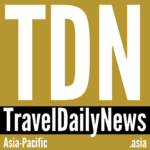The rapid development of Chinese tourism revenue has established ‘travel’ as an important indication of lifestyle, and as such, has become one of the hottest topics on mainstream social media.
 SHANGHAI – GroupM China and CIC released their “2013 White Paper on Travellers – The Rise of Social Travel”. This white paper collects and analyzes the information related to social media, dividing travellers into five different groups among Chinese Netizens, aiming to help brand marketers develop more effective and targeted marketing strategies.
SHANGHAI – GroupM China and CIC released their “2013 White Paper on Travellers – The Rise of Social Travel”. This white paper collects and analyzes the information related to social media, dividing travellers into five different groups among Chinese Netizens, aiming to help brand marketers develop more effective and targeted marketing strategies.
Chinese tourism revenue is expected to reach 2,900 billion RMB by 2013, representing a 120% increase over five years (data source: China National Tourism Administration).
Pioneering social business intelligence company CIC and GroupM Knowledge, the think tank of GroupM, have collaborated once again to develop this white paper. Based on the intelligence obtained from 29.6 million travel related posts or articles, and sampling around 11,230 travellers, this white paper maps out five types of travellers active on social media- business travellers, self-drive travellers, package tourists, luxury shopping travellers and backpackers, and has identified their unique attitudes to travel and different consumption behaviours.
Hotel and transportation are the hottest topics for business travellers. Budget and mid-scale hotels received more buzz than luxurious and upscale hotels from business travellers and they discuss more about hotel services and location. As to transportation, inflight meals and flight punctuality are two important factors when they choose a flight. Brands should make these practical considerations as part of their communications strategy and avoiding claims that they cannot deliver.
As car enthusiasts, self-drive travellers are interested in discussing the joy of driving, car maintenance, and car rental services. They prefer to get automobile related information from automobile dealers. The research suggests that making friends, freedom and family are key motivations behind the discussions of these travellers. Therefore, in their communications strategies for self-drive travellers, brands should focus on their passion for freedom and family happiness.
Package tourists are more willing to share information on travel agencies and their honeymoon experience. The success of the movie, “Lost in Thailand”, helped make Thailand this year’s hottest travel destination after Hong Kong. Travel agencies could launch corresponding travel itineraries to attract consumers. Brands should combine their brand attributes with current trends in order to deepen their impression and broaden impact.
Luxury shopping travellers like to show off their luxury purchases on social media. Leather goods and ready-to-wear are the most buzzed categories. They gain overseas shopping information from Taobao and social shopping websites. The Weibo accounts of professional overseas buyers play a big role in their information gathering and purchasing. Luxury shopping travellers favor innovative and trendsetting brands. Limited editions and unique designs are very effective methods to stimulate purchase.
Backpackers are the most passionate group to share their travel experiences and feelings on social websites. They like to experience the local lifestyle of their travel destination, and are interested in culture and nature; Yunnan and Hunan are the top two most popular destinations based on social buzz. Outdoor equipment and cameras are also hot topics. To backpackers, they will never stop exploring the world and freedom will always be their ultimate goal. A brand culture that is big on “exploration” and “freedom” resonates well with this group and stimulates purchase.
Connie Leung, Senior Vice President – Consulting Business & Marketing at CIC, said, “Social media has had great influence on the rapid growth of the tourism market in recent years: on one hand, people obtain travel related information through search sites, BBS and social platforms; on the other hand, the travel journals and other useful information they share on social media will further influence other netizens in making travel arrangements and consumption choices, directly or indirectly. Collecting and analyzing the data related to social media could help us better understand the market and recommend effective strategies to brand marketers.”
Eve Lo, Chief Knowledge Officer, GroupM China said, “Holidaymakers embrace the joy and opportunity offered by travel, and are open to new experiences, providing a great opportunity for brands to offer engagement. Brand marketers must understand the consumers’ passion points and provide a unique experience.”
More suggestions to brand marketers:
Service oriented mobile brand strategy
Hotels and airlines can leverage Wechat as the foundation of a customer relationship management system with personalized functional support. Naturally, brands generate positive Internet word of mouth by providing good user experience.
Use professional overseas buyers to endorse brands
Brands can leverage fashionistas’ recommendations to provide more fashion focused information to netizens and also leverage professional overseas buyers as shopping guides to influence netizens’ purchase process.
Popular movies are effective venues for brand placement
“Product placement” in popular movies is clearly a good way to showcase travel destinations, judged by the positive buzz generated by “Lost in Thailand”. In China, comedies and all-star casts often generate both higher box office revenue and online discussion. As such, National Tourism Administrations may consider cooperation with popular movies in showcasing beautiful scenery and their destinations’ unique cultural attributes to attract inbound tourists.
TravelDailyNews Asia-Pacific editorial team has an experience of over 35 years in B2B travel journalism as well as in tourism & hospitality marketing and communications.










































































